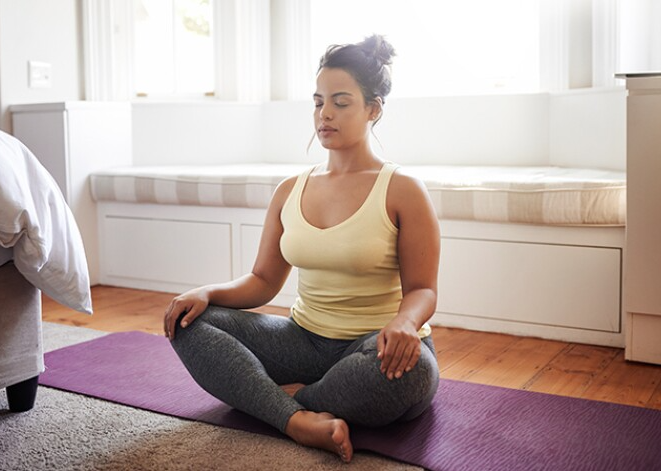Unlocking Better Sleep: Natural Ways to Improve Your Rest Every Night
Unlocking Better Sleep: Natural Ways to Improve Your Rest Every Night
Sleep is a vital part of a healthy lifestyle, just as important as eating well and exercising regularly. Yet, millions of people struggle with falling asleep or staying asleep throughout the night. Sleep deprivation can lead to a range of health problems, including weakened immunity, poor concentration, weight gain, and mood disorders. If you’re one of the many people searching for better sleep without turning to medication, the good news is that natural solutions do exist. This article will explore effective, natural ways to improve your rest every night and wake up feeling truly refreshed.
Why Good Sleep Matters
Before diving into natural remedies, it’s important to understand why sleep is so crucial. During sleep, your body undergoes numerous processes essential for physical and mental health:
- Cell repair and regeneration
- Memory consolidation
- Hormone regulation
- Immune system support
Most adults need between 7–9 hours of quality sleep each night. Falling short of this regularly can lead to chronic sleep debt, which contributes to long-term health issues such as high blood pressure, diabetes, depression, and heart disease.
1. Establish a Consistent Sleep Schedule
One of the most effective natural sleep remedies is simply sticking to a regular sleep schedule. Your body’s internal clock, or circadian rhythm, thrives on routine. Going to bed and waking up at the same time each day, even on weekends, helps regulate your sleep cycle.
Tip: Set a bedtime reminder and aim to get up at the same time every morning, even if you didn’t sleep well the night before. Over time, your body will adjust.
2. Create a Relaxing Bedtime Routine
Transitioning your body and mind into “sleep mode” is essential. A calming bedtime routine signals to your brain that it’s time to unwind.
Try the following activities:
- Reading a physical book
- Taking a warm bath
- Practicing deep breathing or meditation
- Listening to soothing music or white noise
Avoid stimulating activities such as intense exercise, work-related tasks, or screen time at least an hour before bed.
3. Limit Exposure to Blue Light
Smartphones, tablets, and laptops emit blue light that can interfere with melatonin production—the hormone that controls sleep-wake cycles.
Natural Solution:
- Use “night mode” on devices after sunset.
- Avoid screen time at least an hour before bed.
- Consider wearing blue light-blocking glasses if you must use screens at night.
4. Optimize Your Sleep Environment
Your bedroom environment plays a significant role in how well you sleep.
Key improvements:
- Temperature: Keep the room cool, ideally around 65°F (18°C).
- Lighting: Use blackout curtains or an eye mask to block out light.
- Noise: Reduce noise or use white noise machines to drown out disruptions.
- Mattress & Pillows: Invest in quality bedding that supports your sleeping posture.
5. Watch What You Eat and Drink
What you consume in the evening can either help or hinder your sleep quality.
Avoid:
- Caffeine (coffee, tea, chocolate) after mid-afternoon
- Heavy meals close to bedtime
- Alcohol, which may make you sleepy initially but disrupts deep sleep
Do consume:
- Sleep-promoting foods, such as bananas, almonds, cherries, and oatmeal
- Herbal teas like chamomile, lemon balm, or valerian root
6. Try Natural Supplements
While you should always consult with a healthcare professional before starting any supplement, several natural remedies have been shown to support better sleep.
- Melatonin: A hormone naturally produced by your body, available in supplement form.
- Magnesium: Helps relax muscles and calm the nervous system.
- Valerian root: Known for its calming effects and potential to improve sleep quality.
- L-theanine: An amino acid found in green tea that promotes relaxation.
These are not magic pills but can be useful tools when combined with good sleep habits.
7. Get Regular Sunlight Exposure
Natural light helps reset your internal clock. Try to get at least 20–30 minutes of sunlight each morning. This exposure helps regulate melatonin production and improves your alertness during the day and sleepiness at night.
If you live in an area with limited sunlight, especially in winter, consider using a light therapy box.
8. Exercise Regularly
Physical activity can enhance both sleep quality and duration. Aim for at least 30 minutes of moderate exercise most days of the week, but avoid strenuous workouts too close to bedtime as they may have a stimulating effect.
Good options include:
- Walking
- Yoga
- Stretching
- Swimming
Exercise helps relieve stress, reduces anxiety, and physically tires you out—making it easier to fall asleep.
9. Manage Stress and Anxiety
Racing thoughts and stress are common sleep disruptors. Stress management techniques can help calm your mind and prepare you for restful sleep.
Natural stress-reduction methods include:
- Meditation or mindfulness
- Journaling your thoughts before bed
- Gratitude practice
- Breathing exercises like the 4-7-8 method
The more relaxed you are, the easier it is for your body to transition into sleep.
10. Limit Naps During the Day
Daytime naps, especially if long or late in the afternoon, can interfere with nighttime sleep. If you must nap, keep it under 30 minutes and do so before 3 p.m.
Final Thoughts
Unlocking better sleep naturally is not about making drastic changes overnight—it’s about small, consistent habits that align with your body’s natural rhythms. By building a healthy sleep routine, optimizing your environment, and supporting your body with natural methods, you can experience deeper, more restorative sleep without relying on sleeping pills or over-the-counter solutions.
Start with one or two strategies from this list and gradually build a holistic sleep hygiene routine. Over time, you’ll likely notice improved mood, better focus, more energy, and overall better health.










